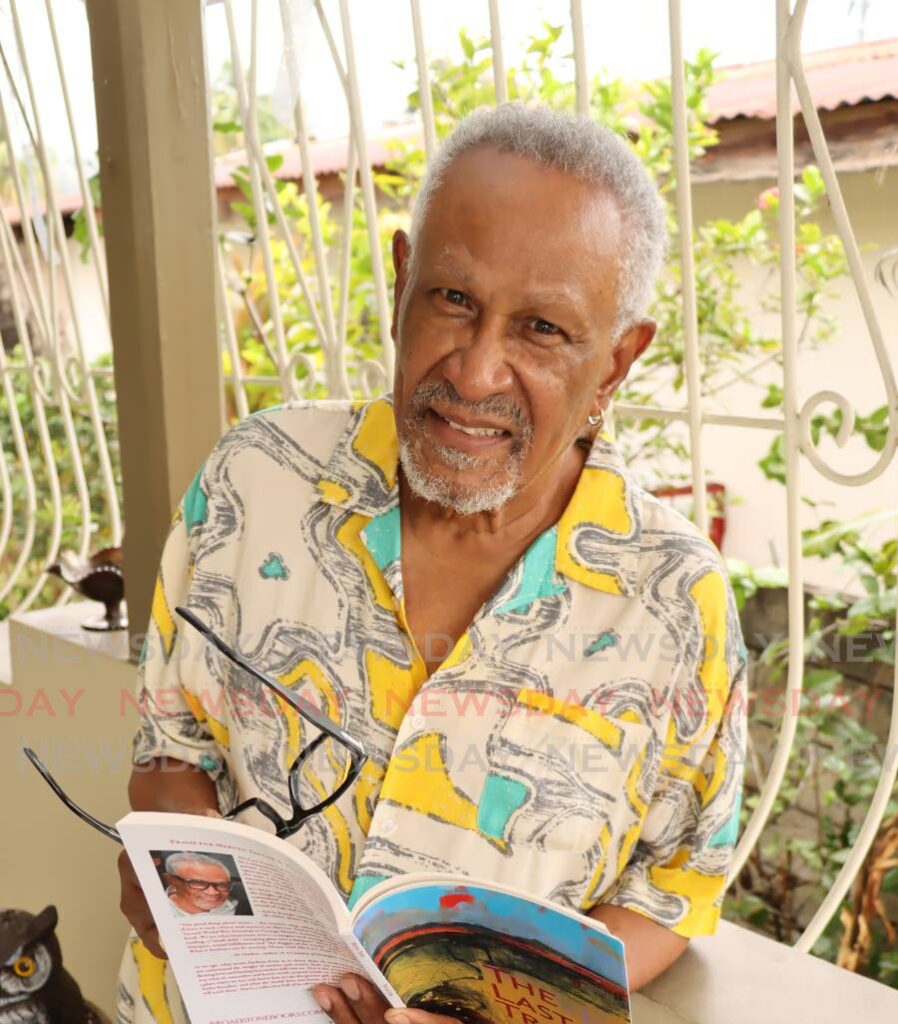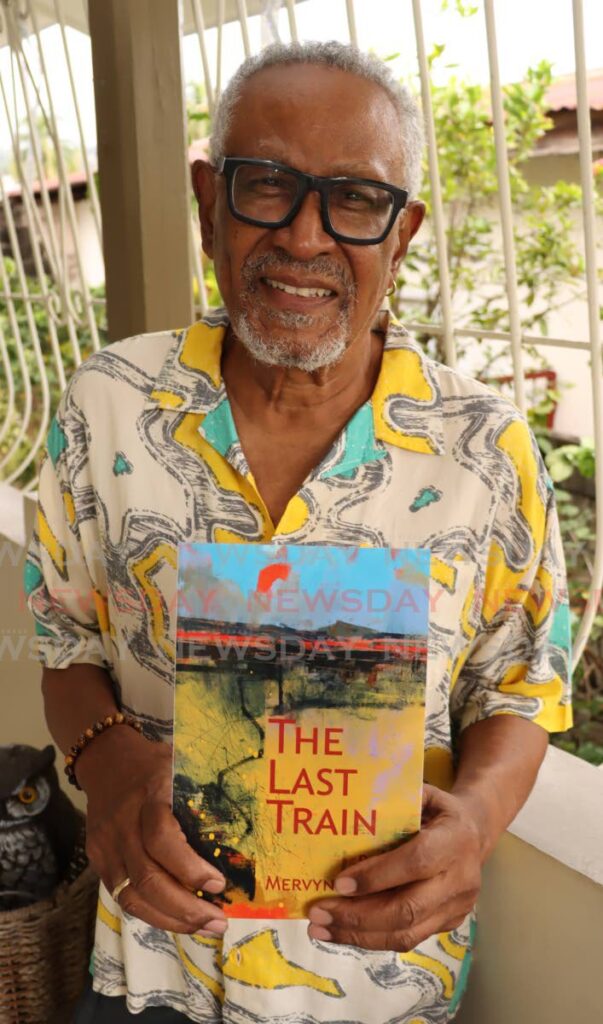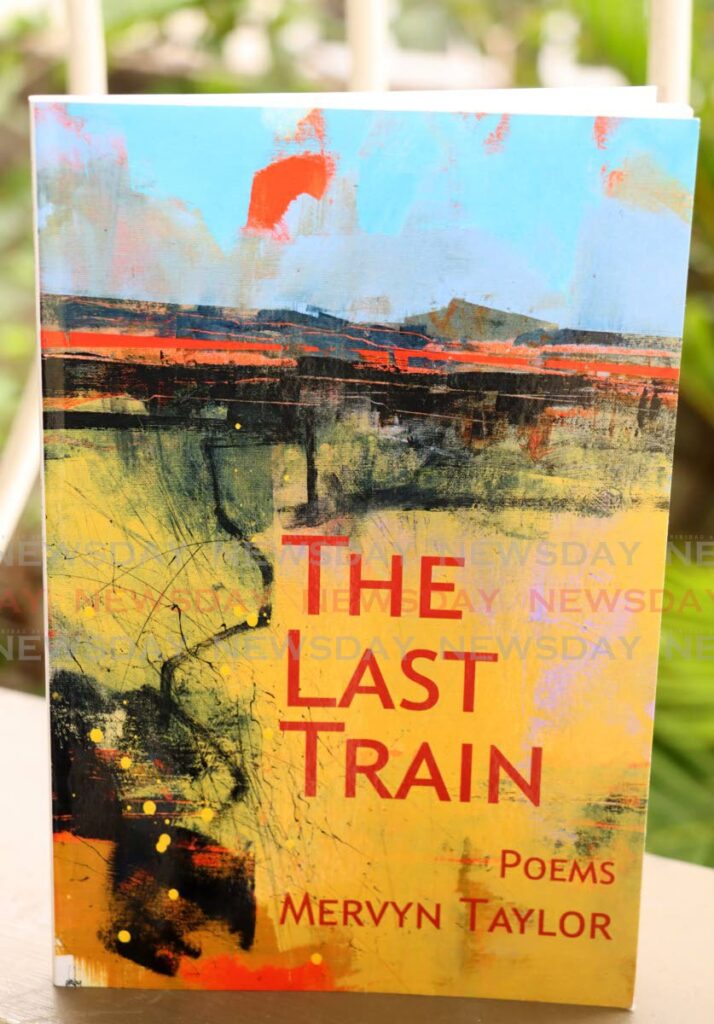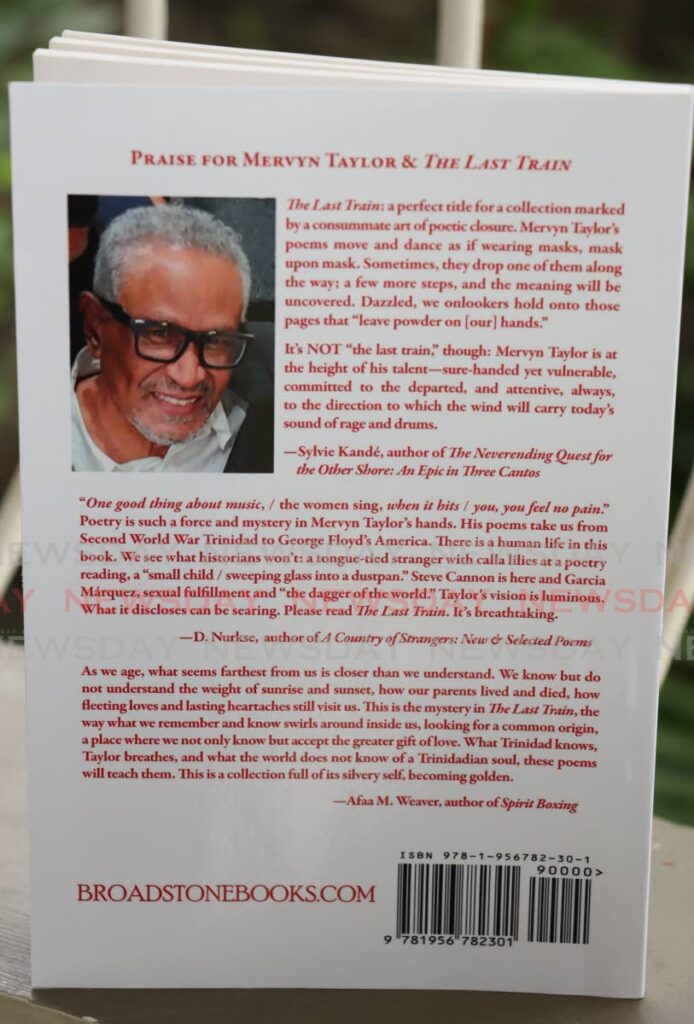The Last Train a metaphor for author's early travels

Mervyn Taylor’s latest collection, The Last Train, published by Broadstone Books in the US, begins with the poet’s own birth, in the poem Arjun’s Prediction:
That a boy like you would be born to a woman thinking herself beyond conceiving...
This was up Belmont Valley Road, before the family moved to one of those narrow lanes nearer the Savannah where, after retiring from the Trinidad Railway, his father grazed his goats. Taylor remembered his father as a “quiet, private guy. In my poems about him, I keep trying to hear what he didn’t say.”

The Last Train, thereafter, becomes the metaphor that facilitates Taylor’s journey as he travels to the US to study English at Howard University and Columbia University, then to Jamaica as the guest of Cmac, the sister of Anthony McNeill, the poet to whom the book is dedicated. Then it was back home, to No 10, in the lane on the island. It is on one of these returns that he discovers, buried in the dirt under the house, a railway tie, which he...puts to stand in the garden near my mother, her fronds touching its iron spikes and his phantom thumb, lost somewhere between here and Arouca.
It is this kind of easily accessible imagery that first drew me to Taylor’s poetry, from his earliest collection, An Island of His Own (1992) through the seven that followed, up to this one. Even Ican keep pace with the narrative flow of each poem, which is very much like a short story stripped to its bare essential elements.
Taylor is a master at juxtaposing the sunny and the dark side of life and the tragic loss of life, much of which we witness today, here, and everywhere through crime.
“Every person has an interesting story,” said Taylor. “I want to remind people of what is valuable in their own lives and what deserves to be communicated to others. The more you know someone, the more you tend to empathise and recognise that someone else’s story is almost yours.”

Taylor taught for many years at Bronx Community College, at The New School, and in the New York City public school system, where young people with names like Jasper Lucky and P’Zazz became his inspiration. At Columbia University, he studied under two Nobel Laureates – Joseph Brodsky and Derek Walcott. He once confessed to Walcott an early ambition to write fiction and maybe become a novelist. Walcott called him a “traitor.”
“Walcott said the play is the next step for the poet,” Taylor laughed.
On this sunny afternoon in St Ann’s, he grins as if something might be in the works.
In 2021, his book Country of Warm Snow, a Poetry Book Society Recommendation, was listed for the Bocas Prize.
Those trips back home, more numerous as the years passed, created new perspectives and brought new understandings of Trinidad and the shared spaces that connect us. In No Back Door, one of his earlier collections of poems, Center of the World describes the area of Brooklyn near Prospect Park where this poet has lived for many years. He speaks of David Rudder performing there one summer, and the Sunday ritual of drummers, who have earned their own space called Drummers’ Grove. Their sounds come through his kitchen window, followed by the voices of Haitians and the horns of their ra-ra band.
“It’s a Caribbean microcosm. The steelband is a common sight exiting the park in September,” said Taylor.
He should know, having been part of the J’Ouvert scene in Brooklyn for many years.

An avid masquerader, Taylor said this Carnival was the first time he didn’t cross the Savannah stage.
“The wait was too long, and I didn’t want to see the empty seats in the Grand Stand again.”
He added that in today’s Carnival, the mas is missing a narrative, the story that spectators once came to see.
“Wining is fun for the masquerader, but eventually becomes boring for the onlooker.”
The proof lies in the almost empty stands.
The number of his mas-playing friends has dwindled, too. This year he was happy to be with his 91-year-old cousin in All Stars, who could still chip all day, both days. Taylor wrote about that, too, in a prose poem titled Epaulets, describing his cousin’s anxiety about not getting his.
“Without them, I would have no rank...I’d just be a petty officer,” his cousin said.
This is what I love about Taylor’s poems. They make ordinary desires and hopes extraordinary, and in so doing, make life and ordinary people special, too.
Taylor’s books are available at Paper Based, Normandie Hotel, at Metropolitan Bookstore, from Amazon and Broadstone Books.

Comments
"The Last Train a metaphor for author’s early travels"